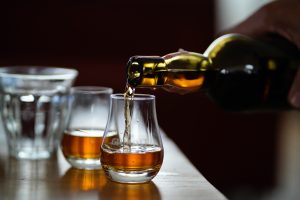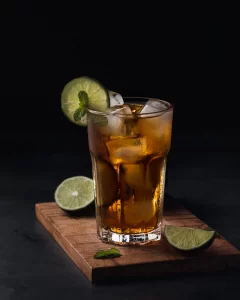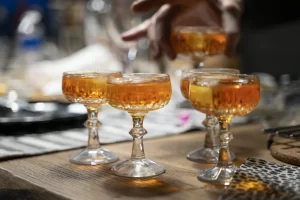Wisconsin Liquor Laws And Regulations
Wisconsin has some pretty standard practices in terms of its alcohol laws. The laws in relation to alcohol in Wisconsin are made up of statewide statutes and local ordinances that govern alcohol sales.
Wisconsin has always been an alcohol-friendly state and has always sought out ways to make the acquisition of alcohol, as well as sales practice easier.
But, what does this mean for those who wish to sell alcohol in the state, or perhaps open up a distillery?
Let’s talk you through the liquor laws and regulations in Wisconsin, and discuss how they may impact you as a buyer, seller, or manufacturer.
Wisconsin Alcohol Law Background
Back when Wisconsin became a state, settlers took issue with German immigrants consuming alcohol on Sundays, as well as how prevalent alcoholism was.
The legislature, therefore, passed a law in 1849 that made any sellers of liquor liable for costs that were incurred by local governments in supporting alcoholics.
Only ten years after this did the state prohibit liquor sales on Sundays.
Later in 1872, alcohol regulations reached new heights in this state with the Graham Law, which prohibited drunkenness, and any alcohol sales to minors, also requiring liquor sellers to post bonds of $2,000, which is over $30,000 in current currency.
German-Americans fought this new law in the courts and at the ballot box, however, they did not win in the courts, but they did manage to elect a legislature that was more alcohol friendly.
Two years hence, new lawmakers passed less restrictive laws, lowering the bond to $500 and allowing Sunday sales of liquor, which also created safe havens for liquor sellers to escape being so liable for alcoholics.
During prohibition, alcohol consumption was banned in Wisconsin. However, before prohibition even ended, the state had workarounds.
Back in 1926, voters allowed for a referendum that allowed for the manufacturing of beer, if not consumption, this law was repealed which enforced Prohibition in 1929.
Retail Sales
In modern-day Wisconsin, state law prohibits liquor sales and wine sales between 9:00 pm and 6:00 am, beer sales are not permitted between midnight and 6:00 am.
The state law also allows municipalities to allow for any further restrictions on alcohol sales.
Municipalities also have the power to ban the issuance of retail liquor licenses altogether as well. Local ordinances typically prohibit retail beer sales after 9:00 pm.
At least two municipalities in the state actually chose to prohibit the retail sales of alcohol until recently, these include the city of Sparta and the village of Ephraim.
2014’s Wisconsin Spring Election saw voters in Sparta narrowly pass a referendum to allow beer and wine sales in convenience stores and grocery stores. However, liquor sales in the city are still banned.
Similarly, in 2016, voters in Ephraim passed a referendum allowing beer sales and wine sales in businesses and restaurants.
Beverage Sales
State law in Wisconsin requires that bars are closed between 2:00 am and 6:00 am on Monday through Friday, and between 2:30 am and 6:00 am on Saturdays and Sundays.
The only time when exceptions to these times are applied is on New Year’s Eve when closing is not required, and the times are also altered per Daylight Saving Time.
The Wisconsin state law also does not permit any municipalities to restrict bars further in relation to closing times.
However, municipalities are allowed to elect to prohibit the issuance of liquor licenses which can make the municipality dry in effect.
Alcohol Drinking Age In Wisconsin

As you may expect, the Wisconsin drinking age is the same as all other states in the U.S.A., at 21 years of age.
However, those who are under 21 years of age can serve, possess or consume alcoholic beverages if they are with a parent, legal guardian, or spouse of legal drinking age.
Those who are 18 to 20 years old may also possess, but cannot consume alcohol as part of employment, such as working as a bartender.
During the early 70s, alcohol sales were reduced to 18 years of age, then in 1984 this was increased to 19.
However, a meeting in 1985 called to change this to 21 years old, finally bringing the state into compliance with the National Minimum Drinking Age on September 1st, 1986.
This was also amended to permit exceptions for people from the age of 18 on the effective date of the law.
This had people between 18 and 21 grandfathered in by this exception after the enactment of Act 337, in effect, the state did not have a uniform drinking age of 21 until September 1988.
Ancient Drinking Laws & Wisconsin
Distillers in other states such as Minnesota are restricted and are unable to sell full-sized bottles, only 375 ml bottles per customer, per day.
Also, when a distillery hits 40,000 gallons per year production rate, they have to stop expanding or close its cocktail room.
However, in Wisconsin, distilleries do not suffer from these issues, they can do what they want, grow, and not have to fight the legislature each year to gain.
Distillery Laws
Wisconsin allows ownership and use of stills for distilled water and essential oils. However, laws reference stills as being illegal for manufacturing distilled spirits only.
Should you wish to sell, manufacture, brew, rectify, or otherwise, regarding alcoholic beverages, you must have authorization and an appropriate license or permit.
In Wisconsin, you can get a distillery license, although there are several licenses needed to legally manufacture spirits, note that you must adhere to federal and state laws and requirements.
To manufacture spirits you will need a TTB 5110.41 Basic Permit, but you will also need a license for the distillery and equipment therein via a TTB 5100.24 Distilled spirit plant permit.
Liquor license fees in Wisconsin vary, however, in some counties the fees will be similar to the following:
- Liquor/ Class A: $500.00.
- Liquor & Beer/ Class B: $600.00.
Licenses require inspections such as health, fire, building, zoning, and police background check inspections as is standard per federal law.
Over
Although Wisconsin used to be one of the most strict states for liquor laws, now they are one of the more relaxed states, especially for manufacturing.
Retail may be limited by time for sales, but distilleries have a lot more freedom in comparison to other states.
They are now one of the best states for liquor manufacturing.









